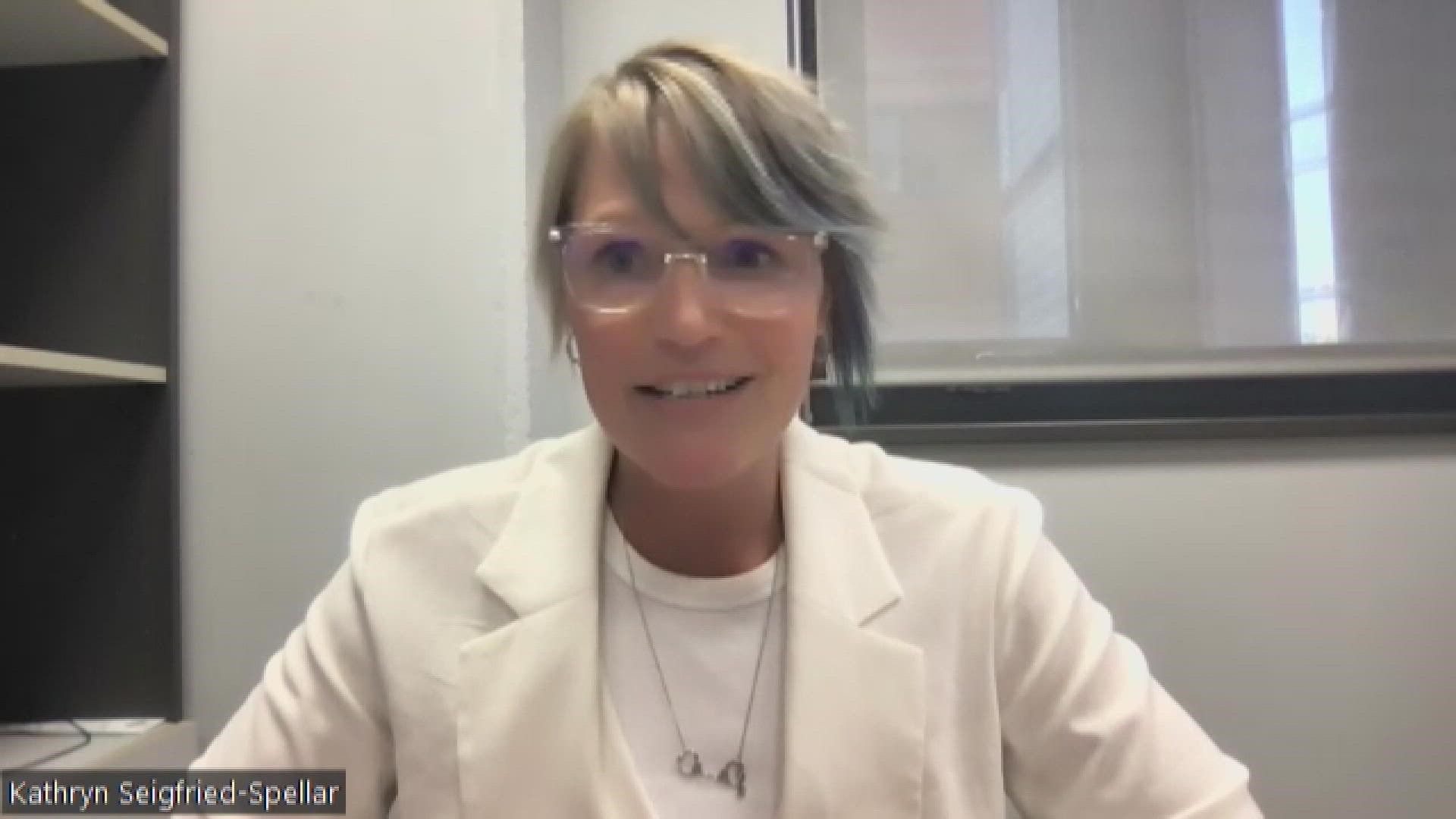INDIANAPOLIS — Cyberbullying is a problem for everyone on the internet, but especially children.
13Sunrise talked with Dr. Kathryn Seigfried-Speller, a Purdue University professor and expert on cyberbullying. She laid out what makes cyberbullying such a problem, how to talk about it with kids before it happens and where you can turn for help when it does.
What is cyberbullying?
“Really, when we’re talking about cyberbullying, we’re talking about traditional forms of bullying that have occurred since any of us were kids,” said Seigfried-Speller. “But what we’re seeing is that because technology is everywhere and we are 24/7 always hooked up to it, we now have bullying happening consistently and constantly.”
Bullying existed long before the internet. But in the past, it mostly stopped when a child left school. They could come home and not worry about harassment or insults. But now, because children are just a few taps of a screen away from each other, the opportunity for bullying never stops.
“You would go home and it would be done,” Seigfried-Speller said. “But in this case, it’s never done because you’re always connected.”
There are more connections than ever now.
Cyberbullying covers all digital communications, including text messages and social media. But the ways kids talk has evolved, and so has cyberbullying.


“It can be on a mobile device or a laptop. It can be on different social media platforms like Instagram or TikTok,” said Seigfried-Speller. “But also on streaming platforms like YouTube. And we have gaming online now, right? So we have cyberbullying in Fortnight.”
How do you talk about cyberbullying?
"It depends on open communication,” Seigfried-Speller said. “Youth need to be able to identify an adult that they can trust.”
Trust means more than just knowing an adult cares. It also means an adult who will listen to a child and take their concerns seriously.
“Adults need to be aware of how we come off when somebody comes to us and talks about harassment. There’s a lot of bias that can come into that. Maybe you have a boy who says he’s being harassed by a girl. And you might have a parent say, ‘Come on, you aren’t being harassed by a little girl,’” said Seigfried-Speller.
Communication with children should also be consistent. Adults need to make sure kids understand “right from wrong” on the internet, where things can get blurry when the communication isn’t face to face.
“This isn’t just a schools need to take care of it situation. This isn’t a ‘just how they are raised at home’ issue either. This needs to be a consistent message,” Seigfried-Speller said.
She says that can even include a contract. It would outline how a child needs to behave to have their freedom on the internet. If the child breaks the rules, they could lose access to apps or whole devices. But that should be a last resort.
“That seems like a solution, I take away the device I end the bullying,” said Seigfried-Speller. “But it doesn’t end there, and youth know that. And so they may be reluctant to report cyberbullying because they know a parent might take the device away.”
What should you do about cyberbullying?
“One thing I like to tell parents is, ‘You are not alone,’” said Seigfried-Speller.
There has been a lot of work done to track cyberbullying and find out how to stop it. If your child is the target of cyberbullying, or tells you another child is, there are resources to help you put an end to it.
The first she recommended is Netsmartz, a program by the National Center for Missing & Exploited Children.
“You can log in as a parent, as an educator, maybe as a youth yourself. It’s also based on ages. The freedoms and autonomy are going to be different, depending on how old and mature your youth is," she said.
Another top resource she recommends is cyberbullying.org.
“I could not recommend that website enough,” said Seigfried-Speller. “They actually go over the laws for each state to tell you who should be handling a cyberbullying issue, how to report the issue and how to talk to internet service providers to get the content taken down.”

